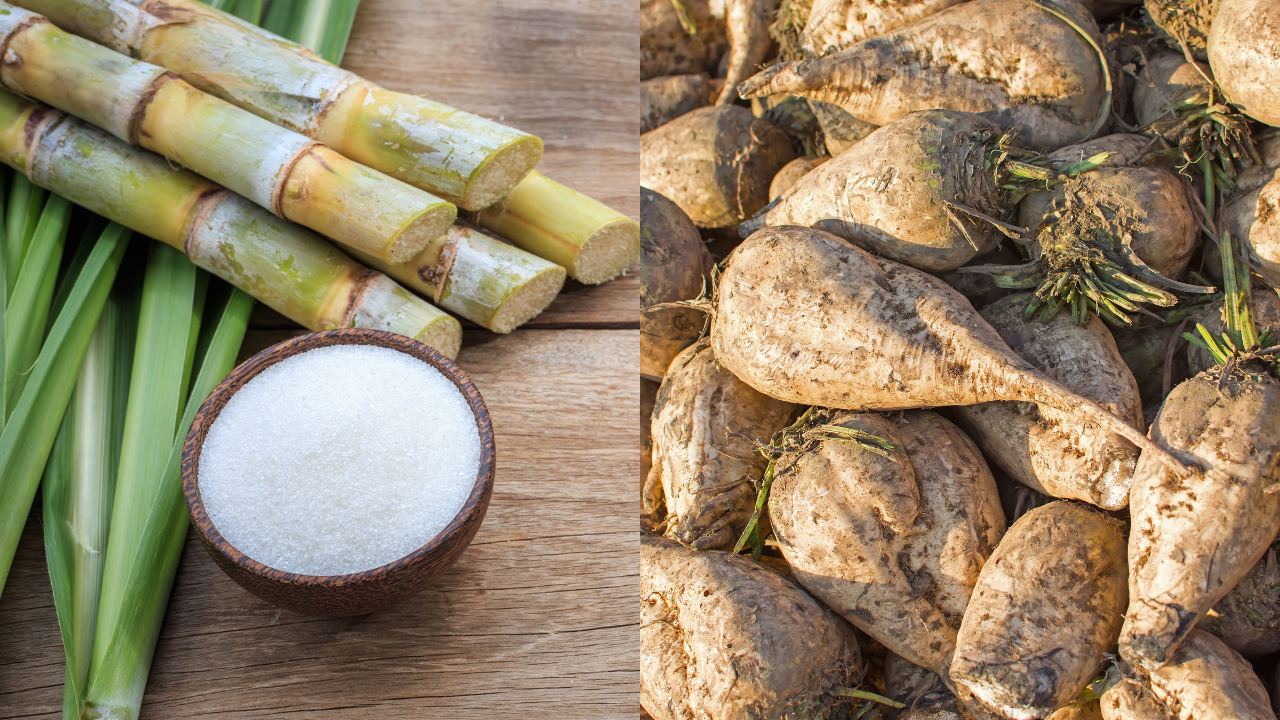Food companies consider beet sugar vs cane sugar when choosing sweeteners for different confectionery items.
Food companies consider beet sugar vs cane sugar when choosing sweeteners for different confectionery items.
Blog Article
Discover the Uses and Perks of Beet Sugar Vs Cane Sugar in Your Daily Diet
Discovering the unique qualities of beet and cane sugar exposes greater than simply their sweetening capacities; it highlights their distinct influences on health and wellness and cookeries. Beet sugar, understood for its refined flavor, is often preferred in fragile desserts, whereas cane sugar, with its tip of molasses, adds richness to durable dishes. Each type holds its very own nutritional profile and glycemic implications, welcoming a deeper understanding of their functions in a well balanced diet plan and lasting intake practices.
Beginning and Manufacturing Processes of Beet and Cane Sugar

The distinctive environments and soil kinds needed for expanding sugar beets and sugarcane add to differences in their growing techniques and geographical distribution, influencing the economics and sustainability of their production. beet sugar vs cane sugar.
Nutritional Contrast In Between Beet Sugar and Cane Sugar
Regardless of originating from different plants, beet sugar and cane sugar are nutritionally very similar, both mostly being composed of sucrose. Each gives concerning 4 calories per gram, translating to roughly 16 calories per teaspoon. Structurally, both sugars are composed of roughly 99.95% sucrose, with very little amounts of various other compounds like wetness and trace element, which do not dramatically modify their dietary accounts.

Eventually, when selecting in between beet sugar and cane sugar based upon dietary web content alone, both deal the same advantages and drawbacks as they are essentially forms of the same molecule-- sucrose, offering quick energy without various other nutrients.
Effect On Health: Glycemic Index and Caloric Material
Discovering additionally right into the effects of beet sugar and cane sugar on health and wellness, it is essential to consider their glycemic index and caloric content. Both sugars are classified as sucrose, which consists of glucose and fructose. This composition leads them to have a similar impact on blood sugar levels. The glycemic index (GI) of both beet and cane sugar is around 65, categorizing them as high-GI foods, which can trigger fast spikes in blood glucose levels. This is a vital aspect for people taking care of diabetic issues or those trying to maintain their power levels throughout the day.
Each sort of you could try this out sugar consists of check that about 4 calories per gram, making their calorie material matching. For those keeping an eye on caloric consumption, especially when taking care of weight or metabolic health problems, comprehending this equivalence is vital (beet sugar vs cane sugar). Extreme consumption of any type of high-calorie, high-GI food can add to wellness issues such as obesity, heart condition, and insulin resistance.
Environmental and Economic Factors To Consider of Sugar Production
Beyond health and wellness influences, the manufacturing of beet and cane sugar also raises substantial environmental and financial problems. Sugar beet farming has a tendency to call for cooler climates and has a lower geographical impact contrasted to sugar cane, which thrives in tropical regions. Nonetheless, both plants are intensive in terms of water usage and land profession, possibly leading to deforestation and water shortage. Financially, the international sugar market is highly volatile, influenced by modifications in global profession plans and aids. Many countries incentivize sugar manufacturing via financial backing, skewing market rates and affecting small-scale farmers negatively.
Additionally, using pesticides and fertilizers in both beet and cane sugar growing can lead to dirt destruction and pollution, more impacting biodiversity and local water bodies (beet sugar vs cane sugar). The option Related Site in between growing sugar beet or cane commonly depends upon local ecological conditions and financial variables, making the sustainability of sugar production a complex problem
Culinary Applications and Taste Distinctions
While the ecological and economic aspects of sugar manufacturing are without a doubt substantial, the option between beet and cane sugar also influences culinary applications and flavor profiles. Beet sugar, stemmed from the sugar beet plant, is understood for its incredibly neutral preference. This makes it a functional active ingredient in baking, where it does not change the flavor of various other parts. It liquifies rapidly and is perfect for usage in cakes, cookies, and breads.
Walking stick sugar, extracted from sugarcane, usually retains molasses traces, which pass on an unique splendor and depth. The small variation in moisture content in between beet and cane sugar can impact the texture and consistency of meals, making cane sugar a favored selection for certain dishes that profit from its special residential or commercial properties.

Conclusion
Finally, both beet and cane sugar have distinctive origins and manufacturing procedures, offering similar nutritional profiles with small differences in sodium web content and flavor. While their impact on health, particularly relating to glycemic index and calories, is comparable, the selection in between them typically comes down to environmental, financial variables, and specific cooking requirements. Understanding these aspects can guide customers in making educated decisions that straighten with their wellness goals and flavor preferences.
Report this page